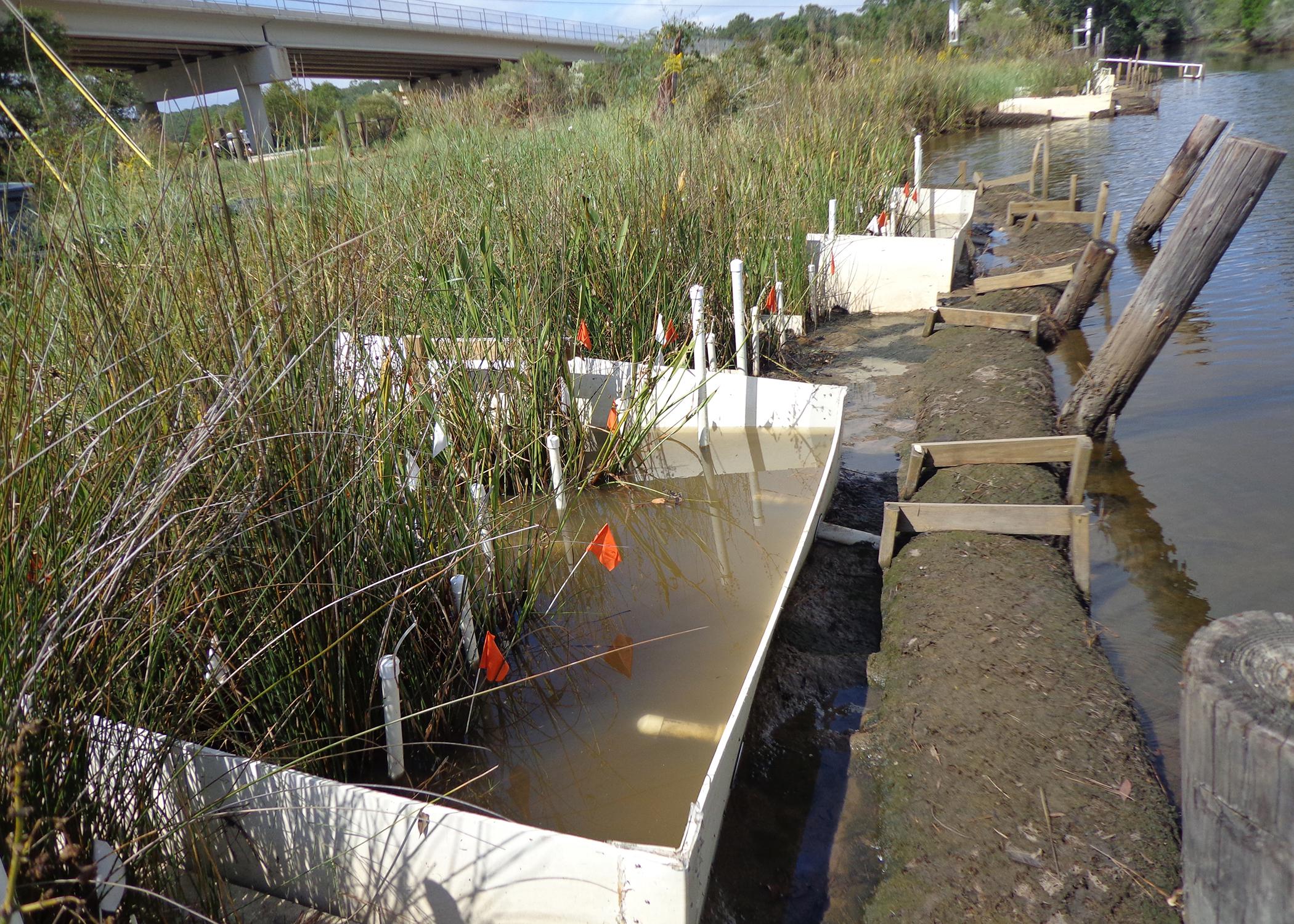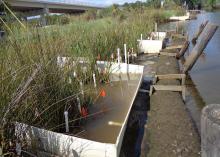Information Possibly Outdated
The information presented on this page was originally released on August 17, 2015. It may not be outdated, but please search our site for more current information. If you plan to quote or reference this information in a publication, please check with the Extension specialist or author before proceeding.
MSU scientist, team create climate change research tools
BILOXI, Miss. -- Evidence showing the effects of climate change on coastal wetlands has been hard to come by, so a new study method developed by a team of Southeastern researchers is making waves in the environmental science community.
Eric Sparks, assistant professor with the Mississippi State University Extension Service and coastal ecology specialist with the Mississippi-Alabama Sea Grant Consortium, worked with Julia Cherry with the University of Alabama, George Ramseur Jr. with the Mississippi Department of Marine Resources, and Just Cebrian with the Dauphin Island Sea Lab and the University of South Alabama.
With the bulk of their materials available at a local hardware store, the team constructed two types of enclosures, known as weirs, to simulate flooding and the effects of sea level changes on existing coastal wetlands.
“Wetlands are critical components of coastal health because they provide large quantities of the ecosystem services that we rely upon,” Sparks said. “The new methods developed in this study will help us more accurately test the impacts of sea level rise on coastal wetlands.”
In the coming decades, researchers predict sea levels will rise because of warming global temperatures. These changes will push greater amounts of salt water into wetlands. By constructing low-cost weirs, scientists can more accurately understand the potential changes to these important natural habitats.
The team’s study will be published in the scientific journal Methods in Ecology and Evolution.
For more information, contact Sparks at 228-546-1025 or eric.sparks@msstate.edu.
Contact: Dr. Eric Sparks, 228-546-1025



